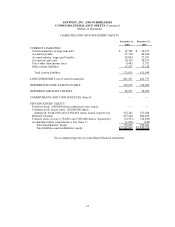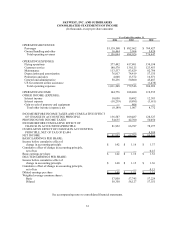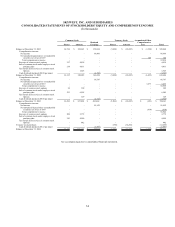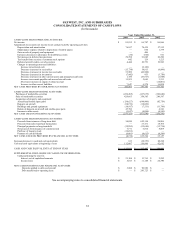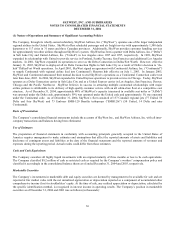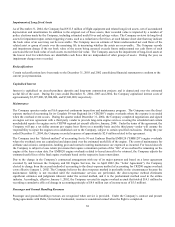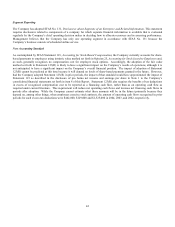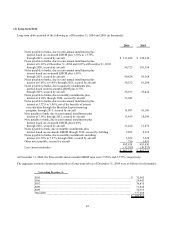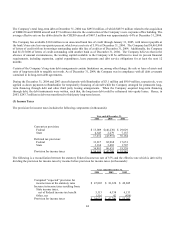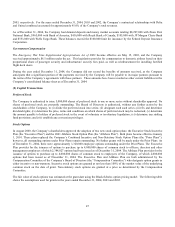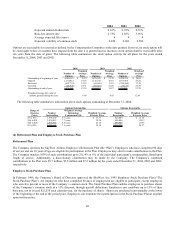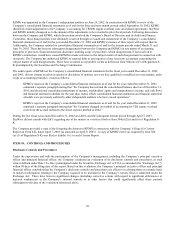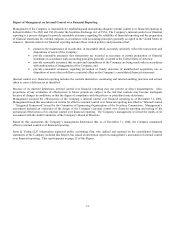SkyWest Airlines 2004 Annual Report Download - page 44
Download and view the complete annual report
Please find page 44 of the 2004 SkyWest Airlines annual report below. You can navigate through the pages in the report by either clicking on the pages listed below, or by using the keyword search tool below to find specific information within the annual report.42
Segment Reporting
The Company has adopted SFAS No. 131, Disclosures about Segments of an Enterprise and Related Information. This statement
requires disclosures related to components of a company for which separate financial information is available that is evaluated
regularly by the Company’s chief operating decision maker in deciding how to allocate resources and in assessing performance.
Management believes that the Company has only one operating segment in accordance with SFAS No. 131 because the
Company’s business consists of scheduled airline service.
New Accounting Standard
As contemplated by SFAS Statement 123, Accounting for Stock-Based Compensation, the Company currently accounts for share-
based payments to employees using intrinsic value method set forth in Opinion 25, Accounting for Stock Issued to Employees and,
as such, generally recognizes no compensation cost for employee stock options. Accordingly, the adoption of the fair value
method set forth in Statement 123(R) is likely to have a significant impact on the Company’s results of operations, although it is
not anticipated to have a significant impact on the Company’s overall financial position. The impact of adoption of Statement
123(R) cannot be predicted at this time because it will depend on levels of share-based payments granted in the future. However,
had the Company adopted Statement 123(R) in prior periods, the impact of that standard would have approximated the impact of
Statement 123 as described in the disclosure of pro forma net income and earnings per share in Note 1 to the Company’s
consolidated financial statements set forth in item 8 of this Report. Statement 123(R) also requires the benefits of tax deductions
in excess of recognized compensation cost to be reported as a financing cash flow, rather than as an operating cash flow as
required under current literature. This requirement will reduce net operating cash flows and increase net financing cash flows in
periods after adoption. While the Company cannot estimate what those amounts will be in the future (primarily because they
depend on, among other things, when employees exercise stock options), the amount of operating cash flows recognized in prior
periods for such excess tax deductions were $442,000, $129,000 and $1,525,000 in 2004, 2003, and 2002, respectively.


